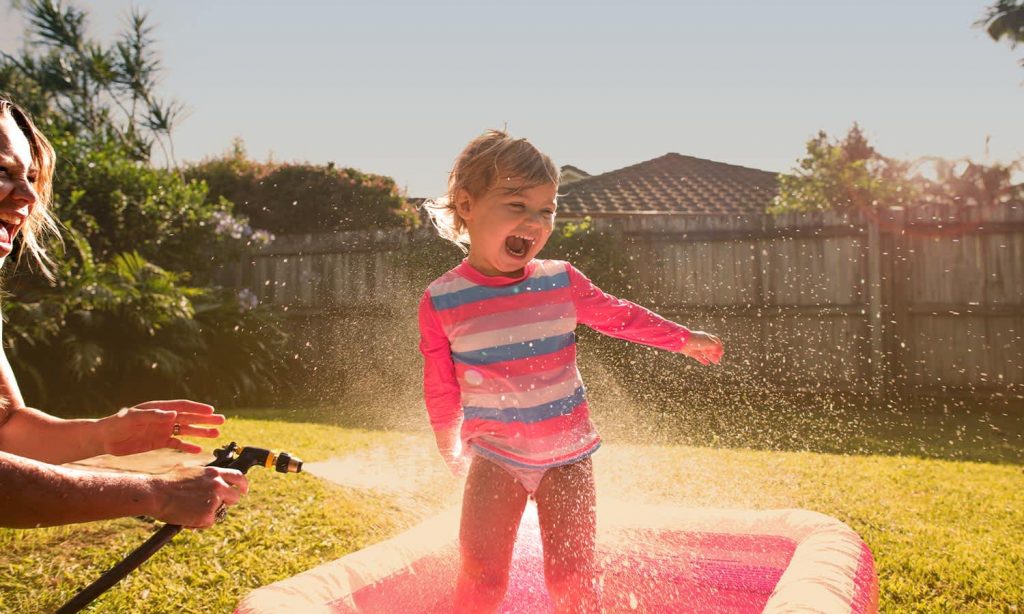The era of COVID is now in its 19th month – though it could have been going on for all of eternity as far as we’re concerned.
If you’re an adult, those 18 months are only a fraction of your existence – albeit, an incredibly frustrating one. If you’re 4 or 5 however, nearly half your lifetime has been lived during a very strange period in human history. Mask wearing, the shut down of schools and daycares, social distancing, and having your parents around all the time is very different to how the rest of us grew up.
We know that the first five years of a child’s life are the most important. 90 percent of our brain development occurs during the first five years and socialising and having new experiences are crucial to learning how to use that growing brain.
Thursday, 9 September is R U OK? Day – Australia’s national campaign to check in on your friends, relatives, and loved ones and see how they’re really doing. This year is particularly challenging as the impact of lockdown and COVID means the answer to that question is more than likely to be ‘no’.
Young people can struggle just as much with the pandemic as their parents, so in this piece, we’re looking at how children have been affected during lockdown and what parents can do to make sure their little ones are okay during this difficult time.
The Impact of Lockdown on Children
Thankfully, the COVID-19 virus itself appears to have little impact on children. While the Delta variant is slightly more likely to infect young people, it still poses a relatively low risk to kids.
The bigger worry during the pandemic is the impact that lockdowns have on the development of very young kids. With the closure and restriction of many places and environments in which they typically have key experiences that are crucial to their development, children are at risk of a number of issues.
Language development is a big one. Children who aren’t exposed to environments in which they hear and speak with others can have less developed linguistic abilities than they ought to have during normal times.
A recent study from the National Early Language & Literacy Coalition found that 1 in 5 Australian children are developmentally behind in their language skills before they even start school. This is a trend that is only likely to have been amplified during the pandemic.
Social skills like sharing and cooperating is another issue. Children who have little experience in social environments in which they have to engage cooperatively with others can struggle with their social abilities later in life.
The more general anxiety and stress of being in a pandemic can also have a negative impact on young people’s mental health as well.
Deb Hopper is the director and senior occupational therapist at Life Skills 4 Kids, a children’s therapy organisation on the NSW Mid-North Coast.
Speaking to The Latch, she says that the rates of anxiety amongst children that she has seen has skyrocketed during the pandemic.
“Sometimes the anxiety has been so much that kids are having massive meltdowns,” Hopper said.
“They’re hitting their parents, they’re really, really not coping.”
“One boy that I work with, within 24 hours of a lockdown being announced, he chewed through the front of three brand new T-shirts, just trying to get his body grounded and to cope.”
Hopper explains that much of the behaviour that parents might see in terms of children acting out is normal as this is part of their coping strategies for being in a difficult situation.
“If parents see that their kid’s behaviour is deteriorating, then that’s to be expected because they’re just trying to make sense of the whole situation”.
Kids Are Pretty Resilient
The good news is that, by this point, many children are pretty well versed in lockdowns and COVID etiquette. Dr Michelle Aguilar, the head of pediatrics at Venice Family Clinic in Los Angeles, California explained on a podcast that young people see COVID measures as normal
“They’re very aware that they need to stand apart, they’re very aware that they shouldn’t touch another item that somebody has,” Aguilar said
“They are telling everything because they have such a heightened awareness and they’re really into wrong and right at this age.”
This chimes with what Hopper has seen as she speaks with young people in therapy. She tells us that parents shouldn’t be worried about some of the impacts of restrictions as children are pretty adaptive.
“For the younger kids that I see, like the three four-year-olds, it’s just kind of normal. Like, they don’t get scared by me wearing a mask when they come to therapy,” she said.
Is My Child Ready For School?
One thing likely concerning young parent’s right now is a child’s readiness for school as they may not have had the same time to grow and learn before they get there.
It’s important to bear in mind here that all children right now are going through the same thing and will have had just as many disadvantages brought about by the pandemic in terms of their ability to connect with others.
A big part of school readiness is in social development, Hopper explains.
She mentions that parents who are concerned can book in with an early childhood nurse or speech pathologist who can give a better idea of where their child is developmentally.
There are also online courses that can be undertaken which, if a child is able to complete them, will give a good indication that they are ready.
R U OK?
Checking in with a child is the most important thing to do but, as you probably know, children are not always the most forthcoming with their emotions. Observing behaviour like the earlier example of chewing through clothing might be a better way to understand what’s really going on.
Hopper explains that adversity and challenges also have the capacity to facilitate growth and development in a child – but that not every child will be able to cope with the current environment and may need more attention and care.
“There’s going to be the group who build resilience, who need adversity. That’s the group that’s going to bounce back and develop awesome resiliency skills, and they’re going to be amazing as adults.
“But there’s going to be the other cohort who are struggling with anxiety now who are at risk of developing obsessive checking compulsions. You know, with washing hands or being very aware of not touching things outside.”
Some children, Hopper explains, could also be at greater risk of depression and PTSD from their experiences in lockdown and so it’s important to identify these patterns early and get professional help when necessary.
Some things Hopper recommends parents do with children to improve their wellbeing and decrease the likely hood of them struggling during the pandemic include having a regular bedtime and wake-up time and regular routines during the day.
“Having a routine board for the week, or the day, and a structure really helps our brain to feel safe and secure. It’s like having boundaries”.
Exercise and regular activity are also crucial in supporting a child’s mental health.
“Getting out, exercising, using those muscles, jumping on the trampoline. Those are the biggest things that help to protect our body from stress and anxiety”.
For slightly older kids, replacing face-to-face social contact with digital contact is also a good idea.
“My sons have social time with their friends in Newcastle. They’re playing Minecraft because it’s that social connection. Because that’s all they can really have at the moment.
“Having family board games or card games at night time is also good. I’ve got a few families who have gone back to old fashioned family time which is a really nice way of way bonding but it also does help to compensate for that lack of socialisation.”
Read more stories from The Latch and subscribe to our email newsletter.







